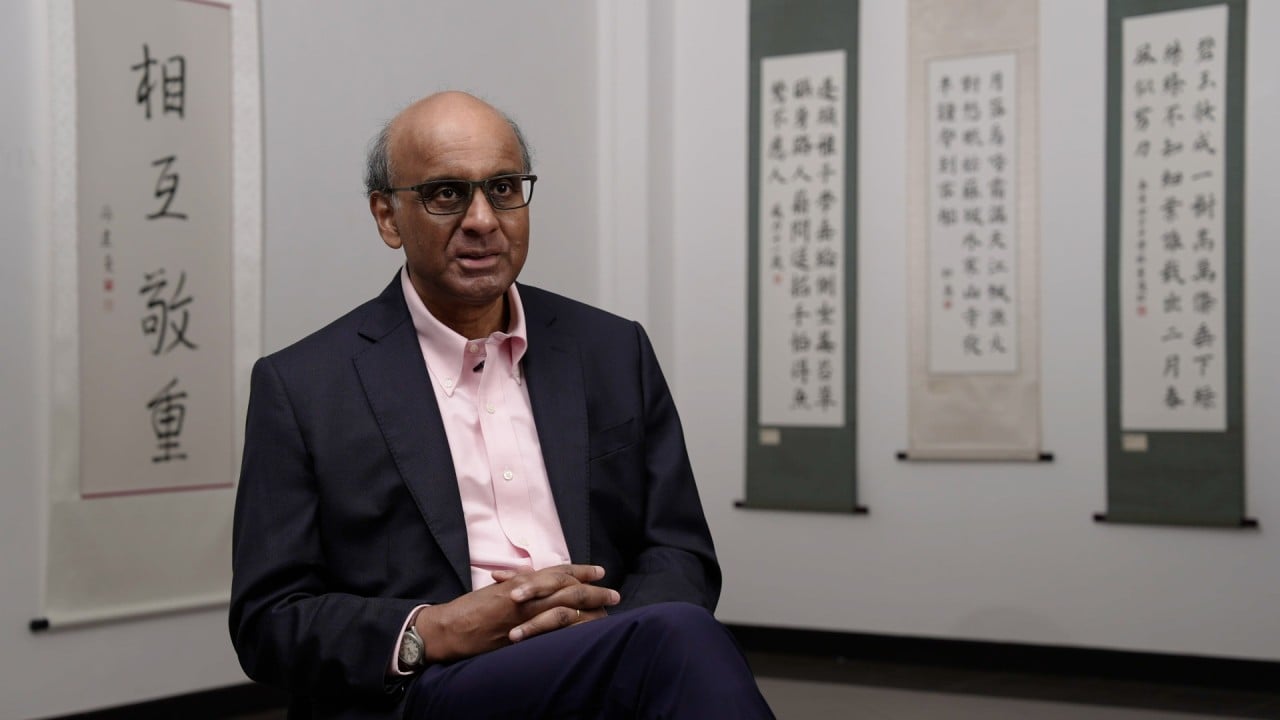
Singapore presidential election: will ‘anti-PAP’ protest voters spoil front runner Tharman Shanmugaratnam’s party?
- Tharman Shanmugaratnam is favourite to win on September 1 but all eyes will be on the margin of victory, a proxy test for the People’s Action Party
- Analysts say Singaporeans may seek to reproach the ruling PAP for rising living costs, political scandals and ‘displeasure with the status quo’
Over the past week, two of the candidates vying to be Singapore’s next president have been revealing details about their private lives, sharing stories ranging from how they met their partners to their personal fertility tips.
The third candidate in the September 1 election, former insurance chief executive Tan Kin Lian, has a different challenge. His social media posts expressing his appreciation for “pretty girls” he spots on the streets do not lack the common touch – albeit in a creepy uncle sort of way, as several commenters have noted.
Equally controversial was his post commenting that a bus filled with Indian people made him think he was in Mumbai, even though Indians have been the island’s third-largest ethnic group since the 19th century.
Despite these gaffes, Tan is being described as the dark horse in the September 1 election. His main asset is that he is viewed as the outsider candidate least associated with the government. He may therefore appeal to the many Singaporeans who want to use the presidential election as a way to signal their disaffection with the ruling People’s Action Party (PAP).
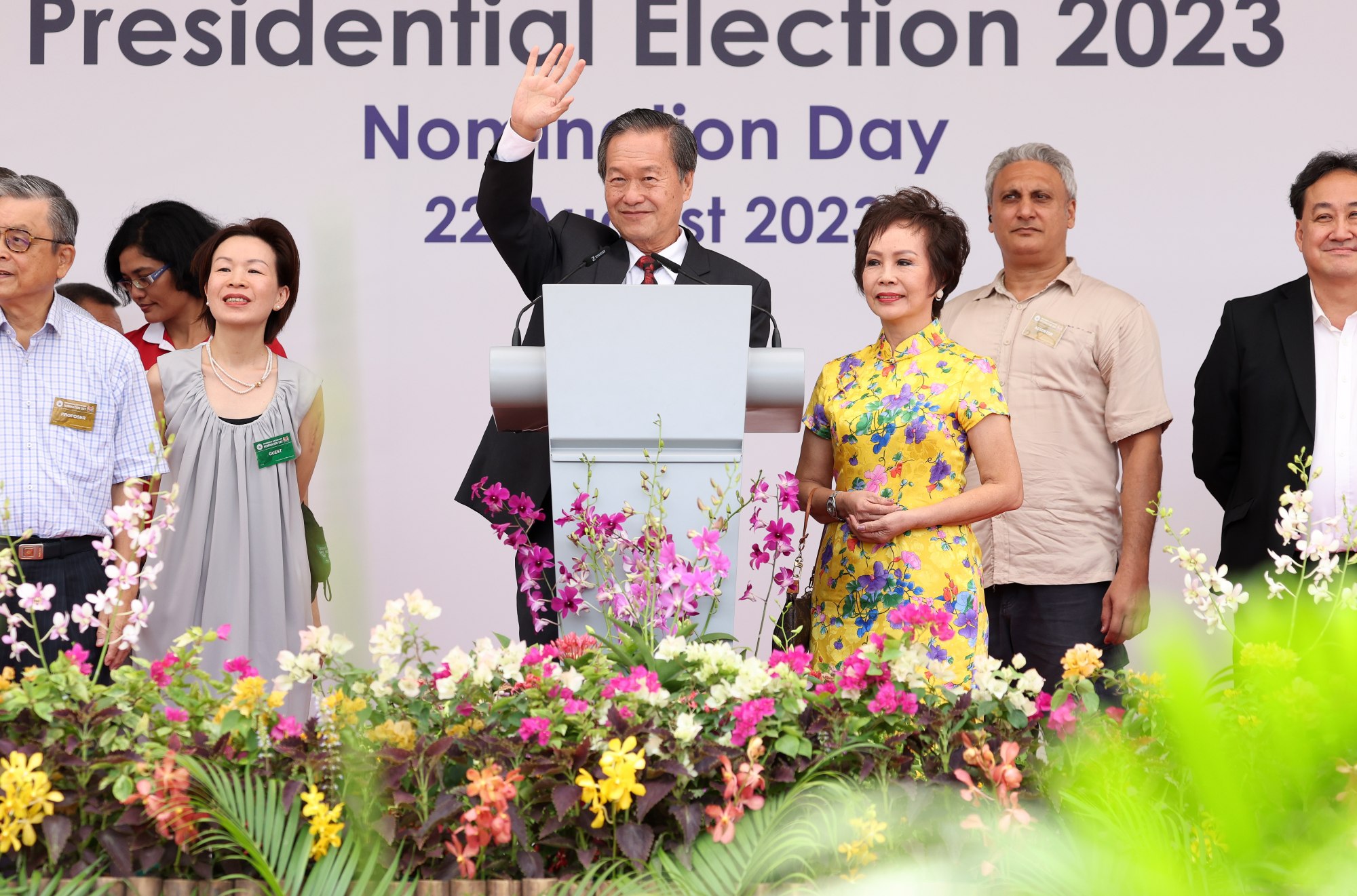
There are ironies here. Tan does not have opposition credentials. On the contrary, he was a former loyalist of the PAP, serving as a party branch chairman for over a decade. The company he used to run, NTUC Income, is a cooperative of the labour movement, which has close ties to the state. He is seen as the “alternative” candidate only because the other two men appear to be even closer to the establishment, and to have the government’s backing.
Furthermore, Singapore’s president has no executive role. The main discretionary power that comes with the position is to block overspending of the city state’s vast reserves. Opposition voters tend to believe the PAP is too austere, but the president only has the power to make it spend less, not more.
Singapore election: voters deny PAP easy ride, deliver hard truths
Many want the president to “act as a counterweight against the hegemonic PAP”, said Rebecca Grace Tan, a political-science lecturer at the National University of Singapore (NUS). They are also looking for ways to make their voices heard. The opposition’s 40 per cent vote share in the 2020 general election translated to just 10 out of 93 elected seats, due to the republic’s first-past-the-post system.
“These sentiments of not being able to adequately express their feelings about the political system within the ‘appropriate’ channels like the general election lead to voters looking for alternative avenues of representation, such as the presidential election,” Tan said.
My sense is that many Singaporeans aren’t fully assuaged or satisfied with PM Lee’s answers in parliament regarding the scandal
Terence Lee, a politics and communications professor at the Sheridan Institute of Higher Learning in Australia, observed: “My sense is that many Singaporeans aren’t fully assuaged or satisfied with PM Lee’s answers in parliament regarding the scandal.”
Voters may see the election as a chance to “let off steam”, he said.
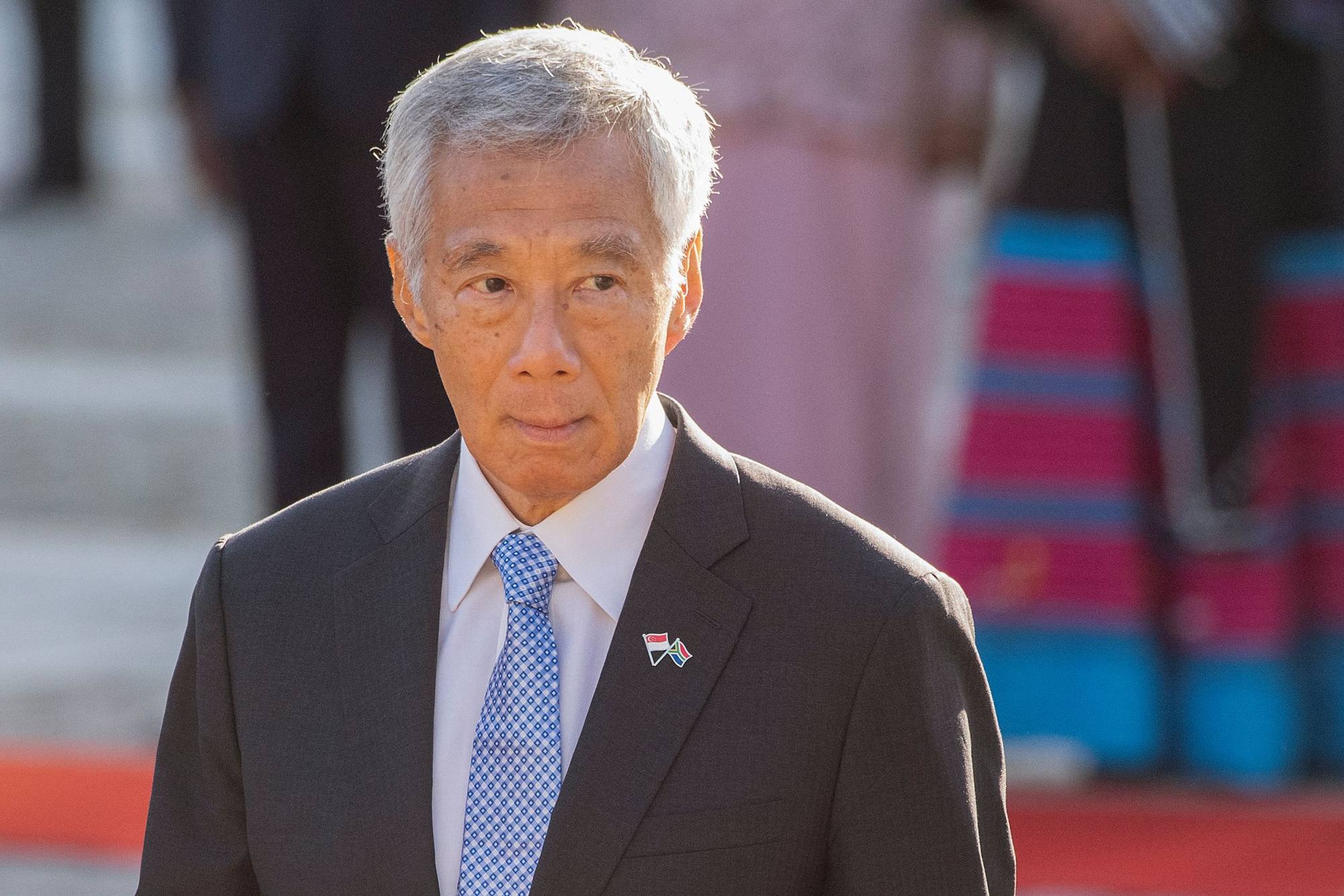
‘Displeasure with the status quo’
Since the president still serves a ceremonial function, the government has tried to maintain the dignity of the office by keeping elections for the post sober. This year, for the first time, it has discouraged election rallies and not specified any designated rally sites.
It has also restricted who can run for president. Higher qualification requirements were introduced in 2016 for candidates from the private sector. Meanwhile, powers have been shifted to the presidential council of advisers, most of whom are not appointed by the president.
The post does come with veto powers to block spending from Singapore’s reserves, as well as key public sector appointments – but only with the agreement of the council.

In 2016, the government also controversially amended the constitution to limit elections periodically to candidates from ethnic minority groups. This, it said, was to ensure that the country regularly had non-Chinese presidents as was the convention before the presidency became an elected office.
The Singapore government’s close management of the elections has not quelled, and may have intensified, its detractors’ determination to wrest the presidency out of its hands.
“The design of the [presidential election] has come to epitomise the obsession of the PAP for political control,” said Garry Rodan, Honorary Professor of the University of Queensland and long-time scholar of Singapore politics. “Hence, it is seen by many as an invitation to vote against PAP-endorsed candidates.”
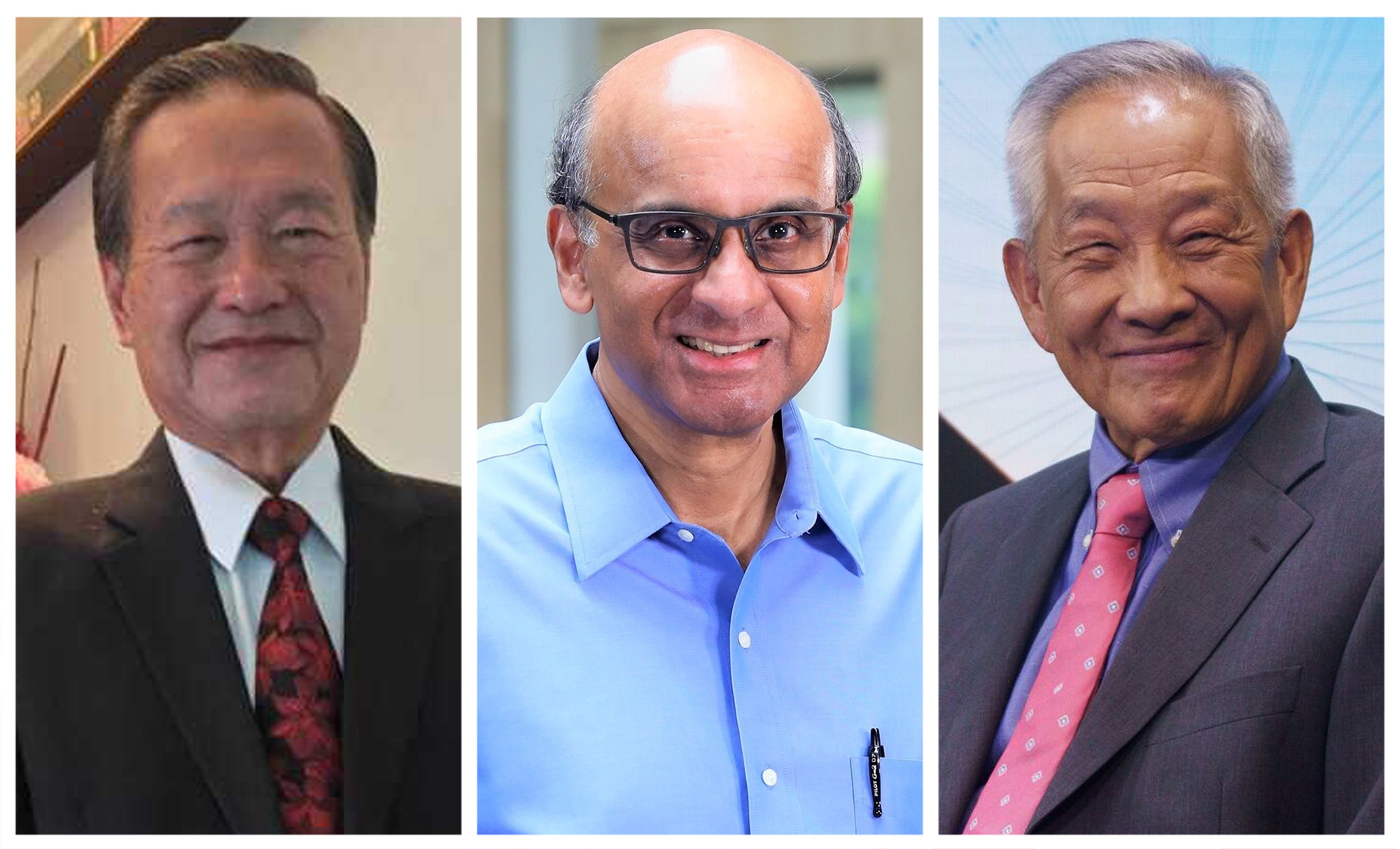
All of this year’s candidates clearly recognise voters’ desire for a president who will be his own man and not simply do the PAP’s bidding. All three have been trying to persuade the electorate that they can be counted on to fill the role with total independence – a feat that’s hardest for Tharman to pull off, despite all three coming from the establishment.
Until last month, he was a senior minister in the very cabinet whose decisions he would be expected to scrutinise as president. He has been a key member of former Prime Minister Goh Chok Tong and current Prime Minister Lee’s cabinets ever since 2001.
On the other hand, Tharman has felt no pressure to disavow his years in government. He was one of the most popular PAP ministers and highly respected, consistently winning his constituency by far bigger margins than the party’s national vote share. His track record in general elections, and the fact that he is already a household name, make him the clear front runner in the presidential contest.
However, in the absence of opinion polling it is not known if his government background will be a net asset or liability in the coming election.
As for Ng, he was never a political office holder but he did spend 45 years in the administration. Like Tharman, Ng made his name in the state’s financial institutions. He went on to be chief investment officer for GIC from 2007 to 2013.
As someone from the same sector, Ng may not be able to distinguish himself enough from Tharman, whose financial credentials are clearly superior – having served for nine years as finance minister and for even longer as chairman of the central bank.
If so, it may be Tan who emerges as the main magnet for anti-PAP voters. This argument was put forth in a commentary in the country’s largest Chinese-language daily Lianhe Zaobao. Its headline suggested that the three-way race may shape up to become mainly between “PAP” man Tharman and the “opposition” man Tan.
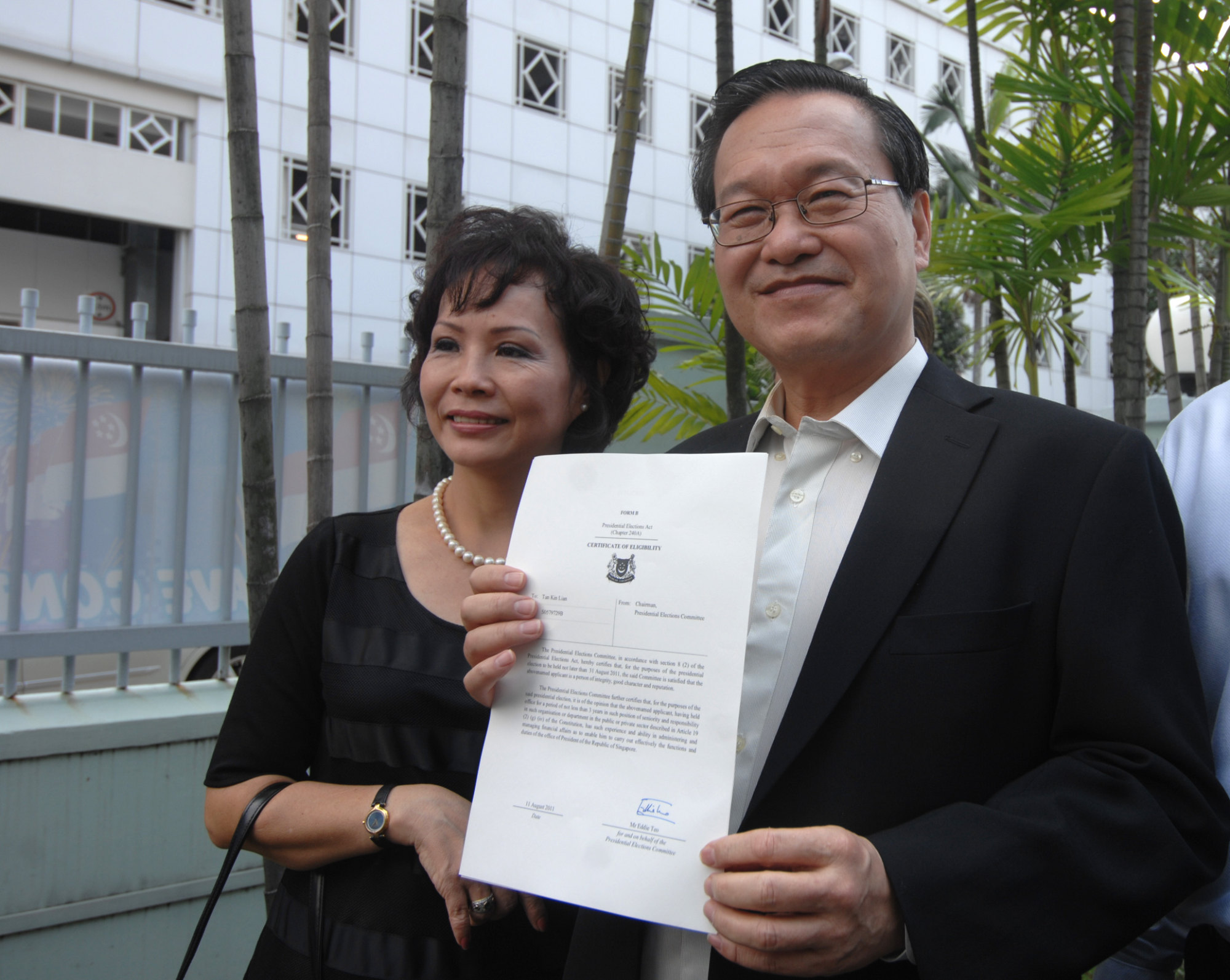
Tan’s record is not propitious. He contested the 2011 presidential election but received less than 5 per cent of the vote, losing his deposit. However, in that four-way fight, there was a clear and compelling choice for opposition supporters in the person of Tan Cheng Bock. This time, Tan Kin Lian can expect more success in attracting anti-PAP votes, despite the “pretty girls” controversy.
In the “freak event” that Tan emerges the winner, the ruling party may be compelled to revert to the pre-1991 system of appointed presidents, Rodan said. But even without such an outcome, any further “new amendments to further tighten eligibility would only increase voter disillusionment with the elected president institution and the PAP,” he said.
A fourth option for voters that has been aired publicly is to abstain. Voting is compulsory in Singapore, but since the vote is secret, Singaporeans can drop unmarked papers into ballot boxes without penalty. In the last contested presidential election, turnout was around 95 per cent and spoiled votes accounted for under 2 per cent of the total.
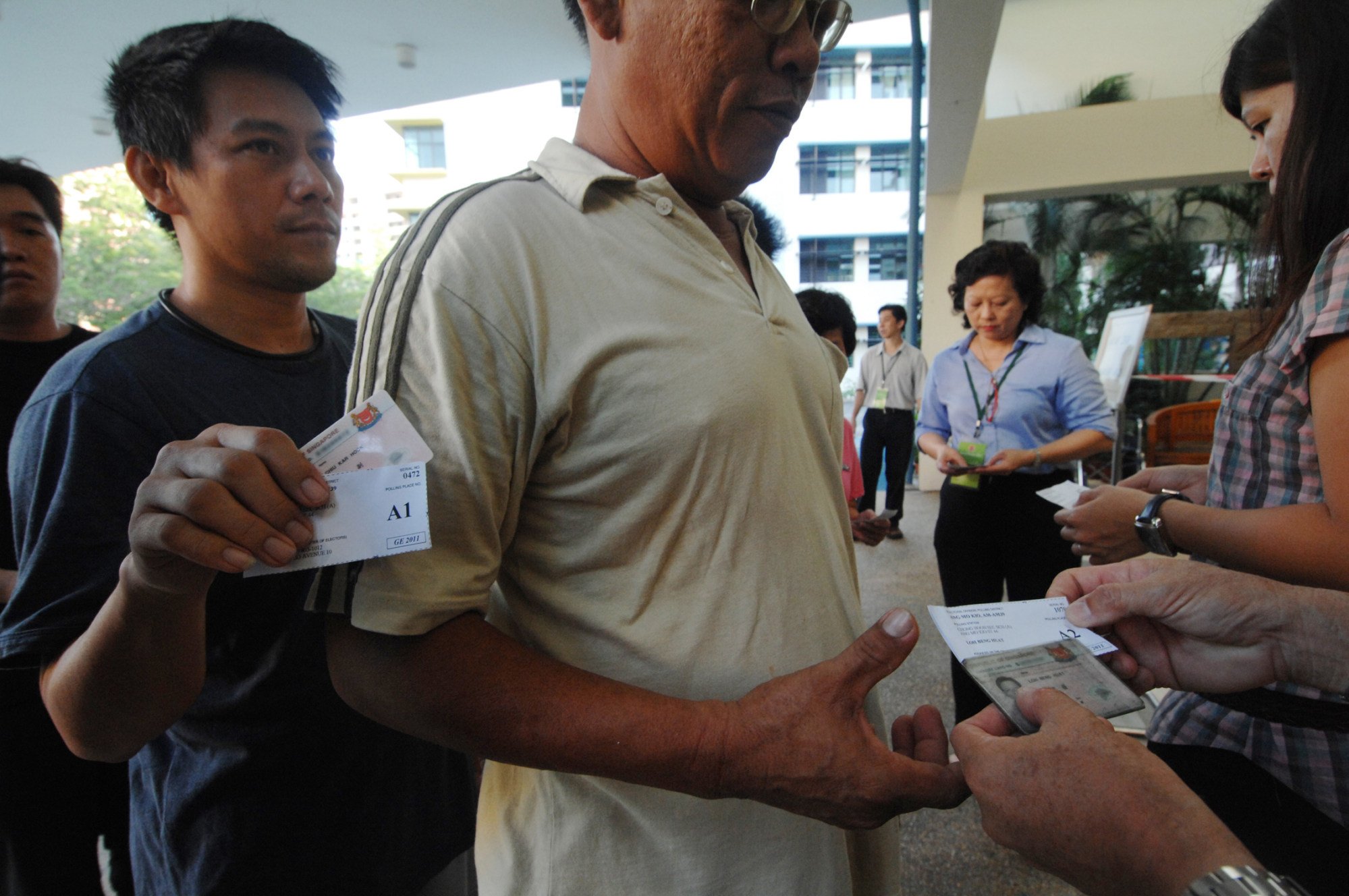
In her weekly newsletter, Singaporean activist journalist Kirsten Han told her subscribers that she had decided to help increase that figure by spoiling her vote, partly because of the poor quality of alternative candidates but also because of the way the government has tinkered with the system.
“I’m not interested in voting for a protest candidate. In fact, I’d like to protest against the protest candidate too,” she wrote. “I also believe that a significant number of invalid votes can also send its own message … It signals disillusionment and displeasure with the status quo.”
Whether this idea will gain momentum in the remaining days of the campaign remains unclear but Tharman has urged voters to see the election as “extremely important” for Singapore’s future.
One factor that may deter voters from adopting Han’s approach is that spoiled votes are excluded when working out margins of victory. Conventionally, vote shares are calculated based on the total number of valid votes. Therefore, if “opposition” voters want to drag down Tharman’s percentage, blank votes will not help.
A gauge of PAP popularity
Since the president cannot initiate policy, presidential elections in Singapore do not focus on policy debates and candidates do not have detailed platforms.
Therefore, the perceived significance of the presidential election is largely tied to what the results will indicate for the PAP. The government has to call general elections by November 2025. The September 1 poll results will provide a midterm barometer of the PAP’s prospects in the next general election.

It is unlikely, however, that a poor presidential election result would affect these leadership transition plans. NUS political scientist Chong Ja Ian does not think it should reflect on the 4G’s standing.
“Some people have talked about the PE as a referendum on PAP performance,” he said. “However, as the 4G has been less associated with big policy initiatives, the results may have less of a direct bearing on them at any rate.”
Instead, Chong and other analysts say the result would reflect on the current government of Prime Minister Lee.
Few expect Tharman to lose. He was a consistent heavy hitter at the polls for the ruling party, scoring well above the party’s national average score. In 2020, for example, he garnered 74.62 per cent for his Jurong group representation constituency, while his party claimed a 61.24 per cent vote share overall.
For many people, this election will not be about the popularity of Tharman, but it will be a referendum on the PAP
Lee at the Sheridan Institute says he expects Tharman to “win easily with a clear and strong majority”. However, he may not replicate his general election performances.
Walid Jumblatt, a political scientist from Nanyang Technological University, said: “For many people, this election will not be about the popularity of Tharman, but it will be a referendum on the PAP. Tharman is likely to win, but the amount of non-Tharman votes would matter as it would tell us a lot about the mood of the electorate.”
Singapore kick-starts presidential campaigning amid ‘pretty girls’ controversy
Rebecca Grace Tan from the NUS said: “Voters do want the most competent government, which is why so many of them support the PAP in the general election, but still want to express their disapproval with some ways in which the PAP functions.”
Voters have “the sense that there is little at stake” in presidential elections compared with general elections, making them more willing to vote for a non-establishment candidate, she added.
In theory, Singapore’s elected president has significant powers to block the use of the country’s huge reserves. But since the ruling party has been scrupulously financially prudent, this presidential election – like the two contested polls before it – will not be about balancing Singapore’s books. Instead, it will mostly be about balancing power.



